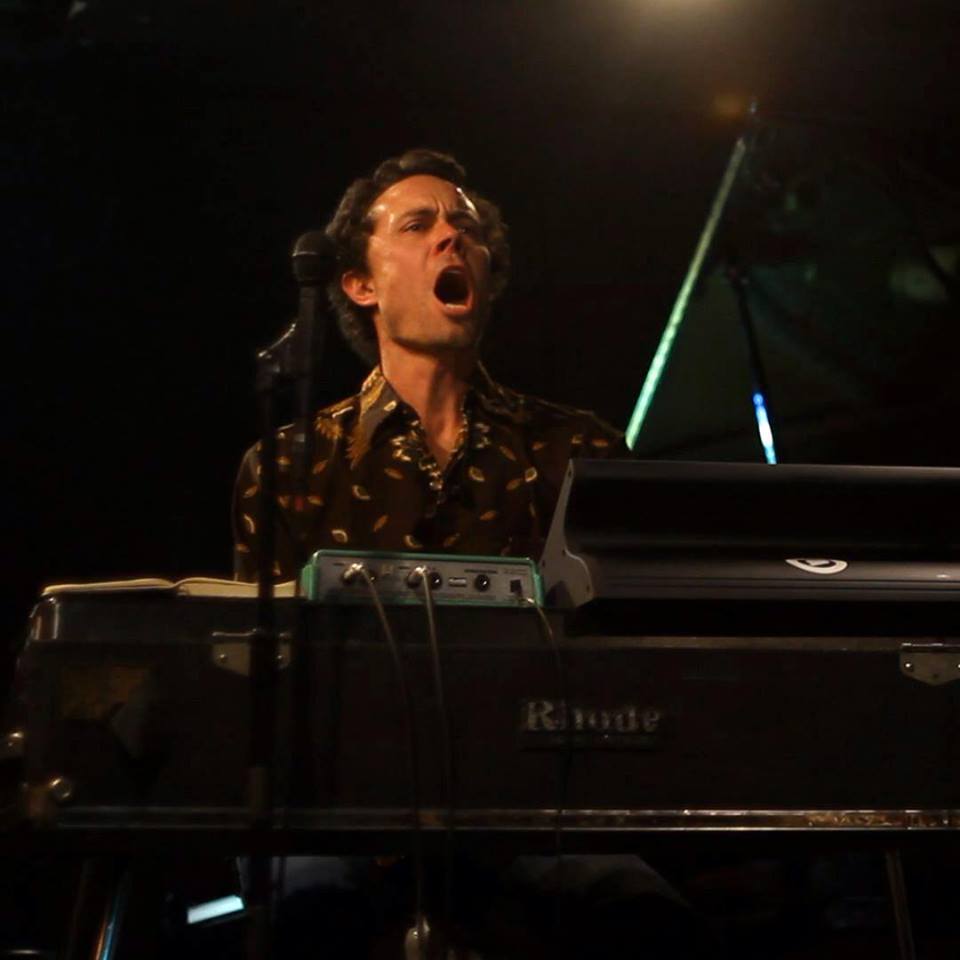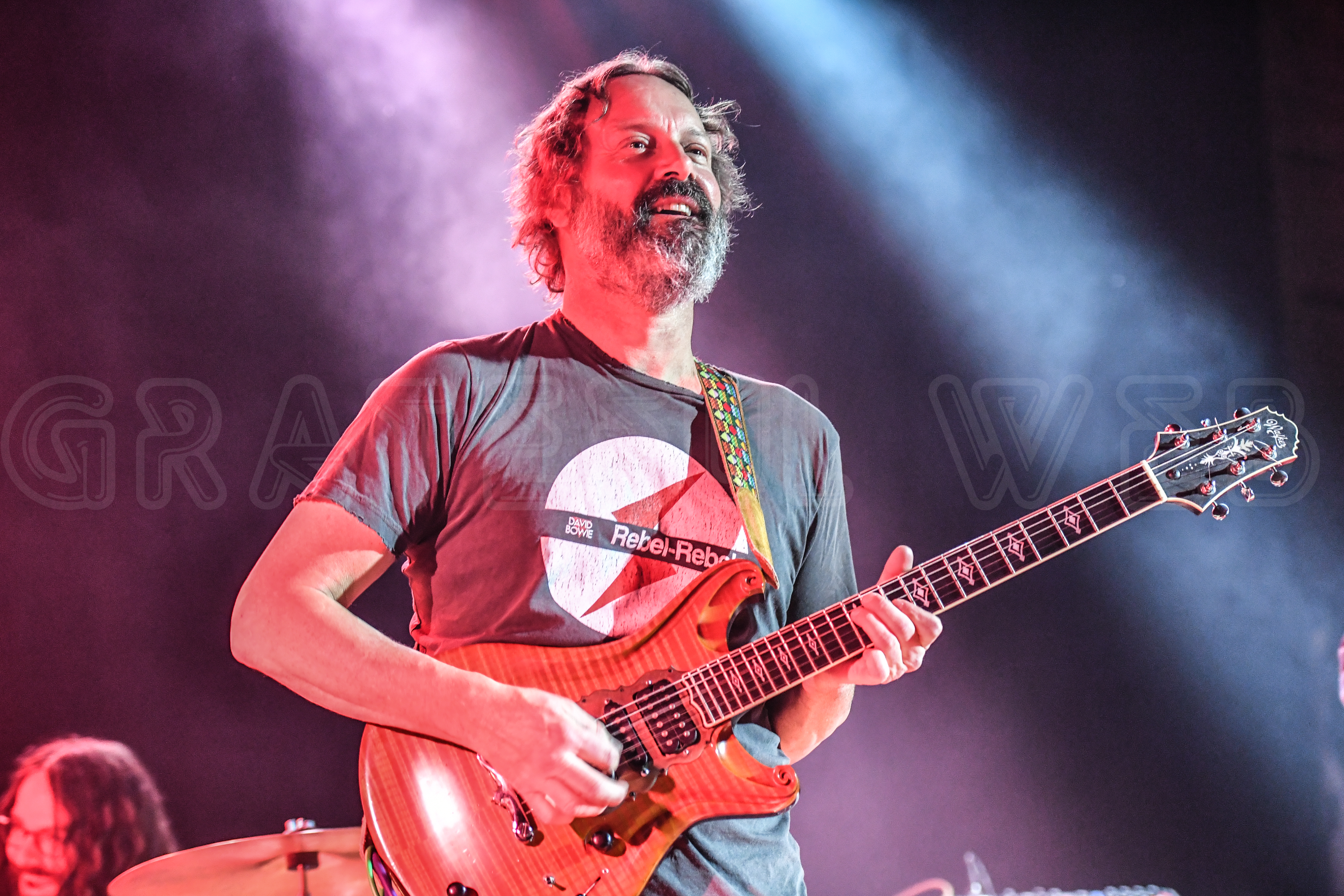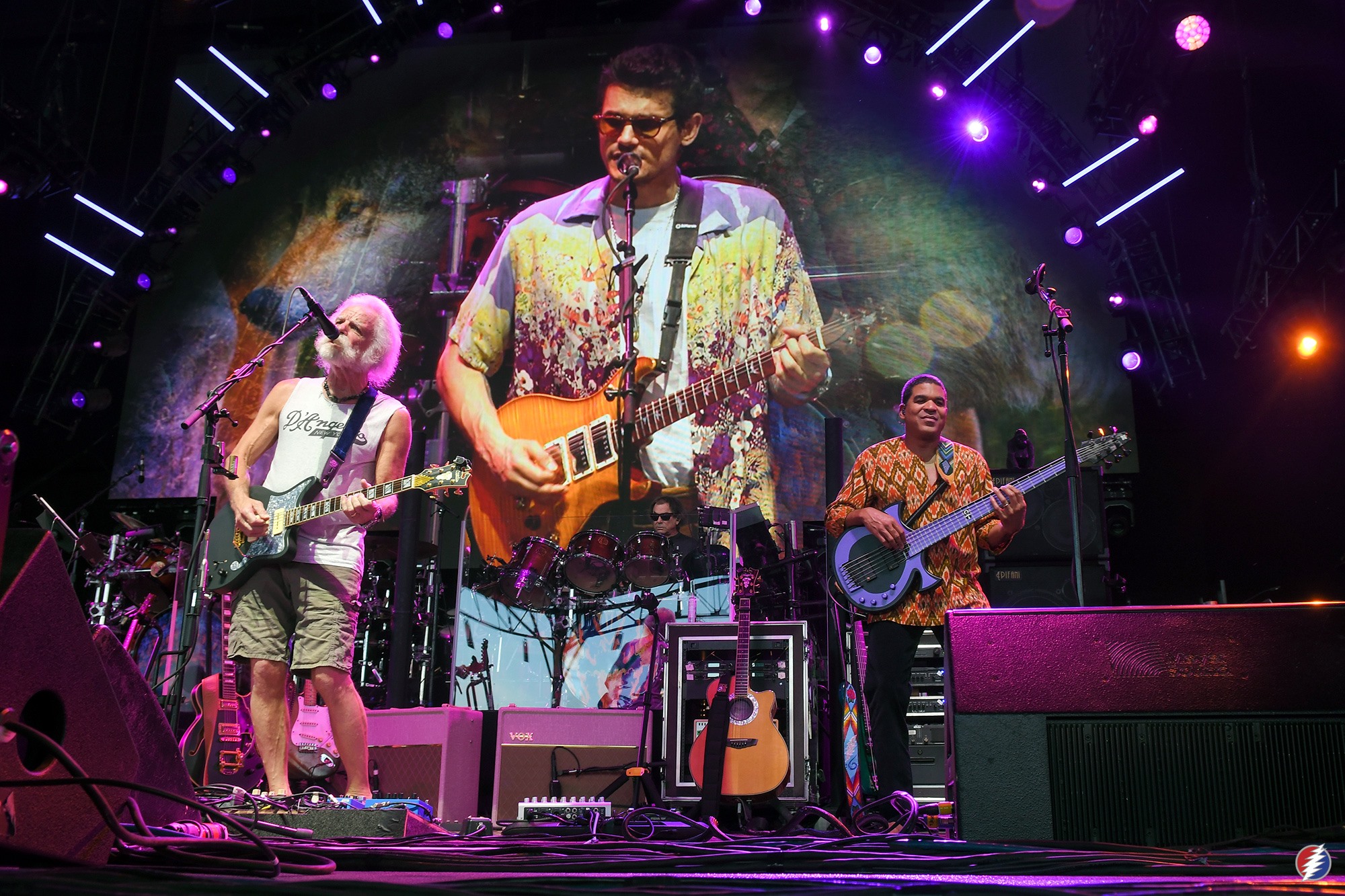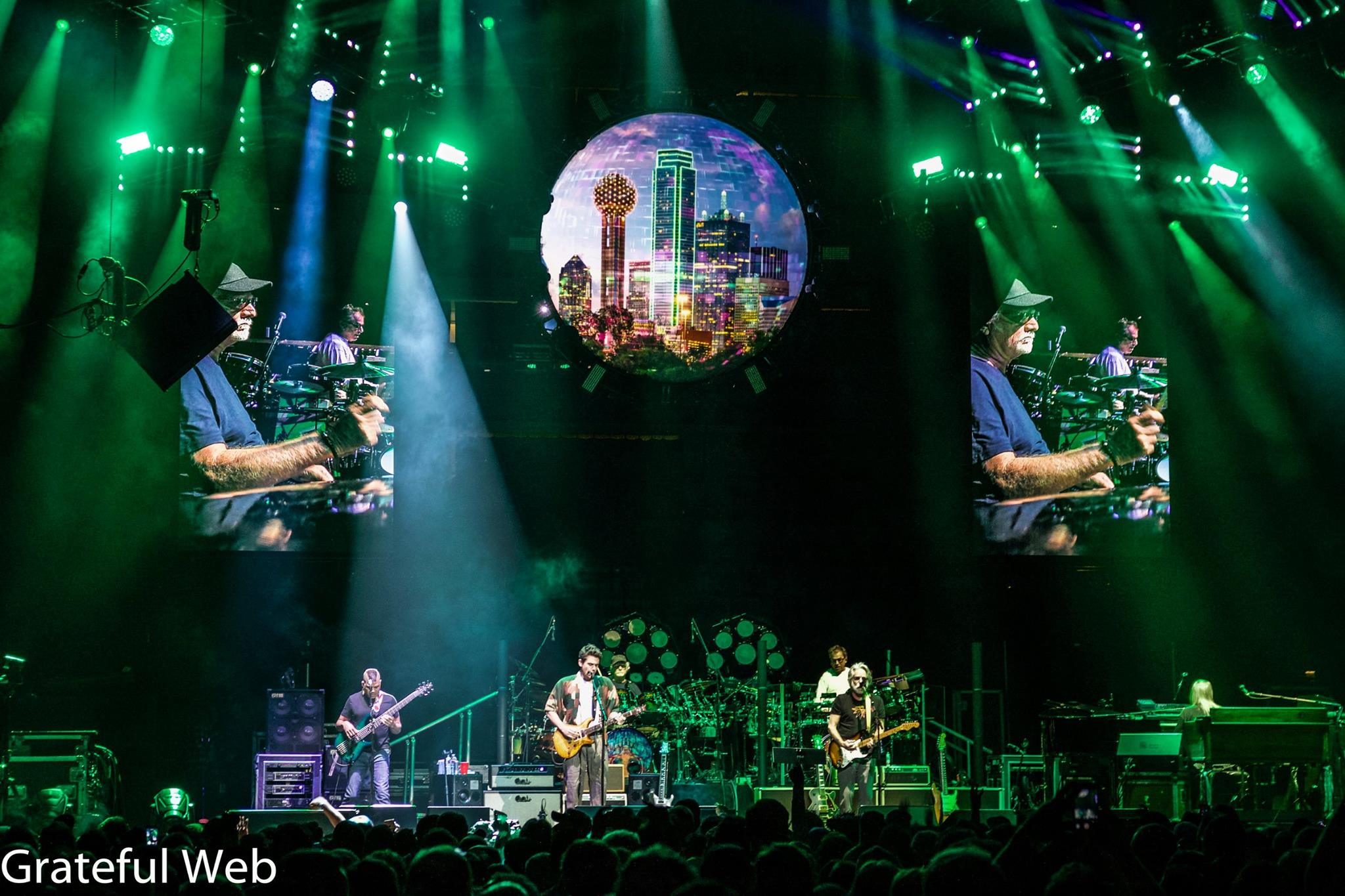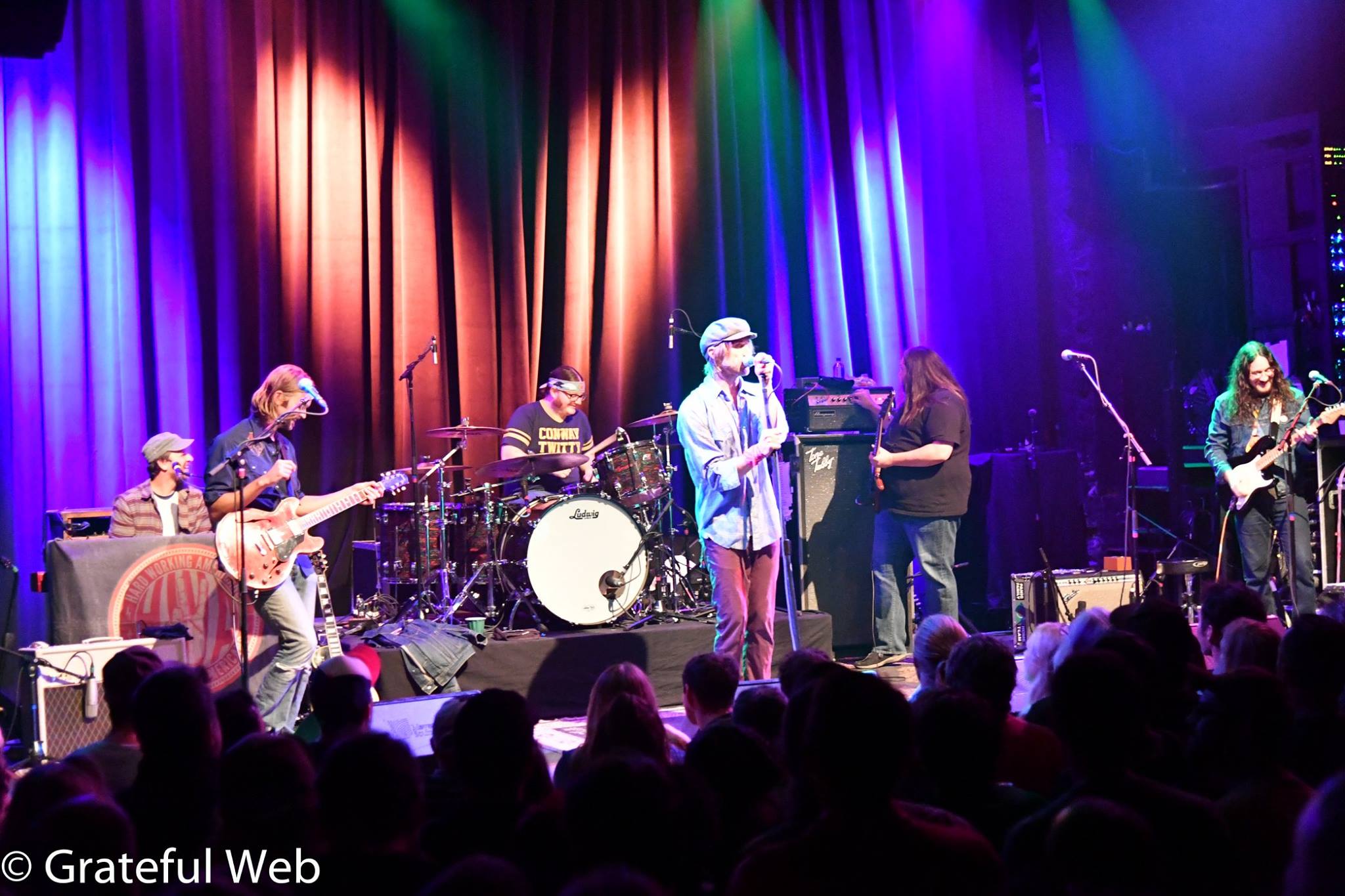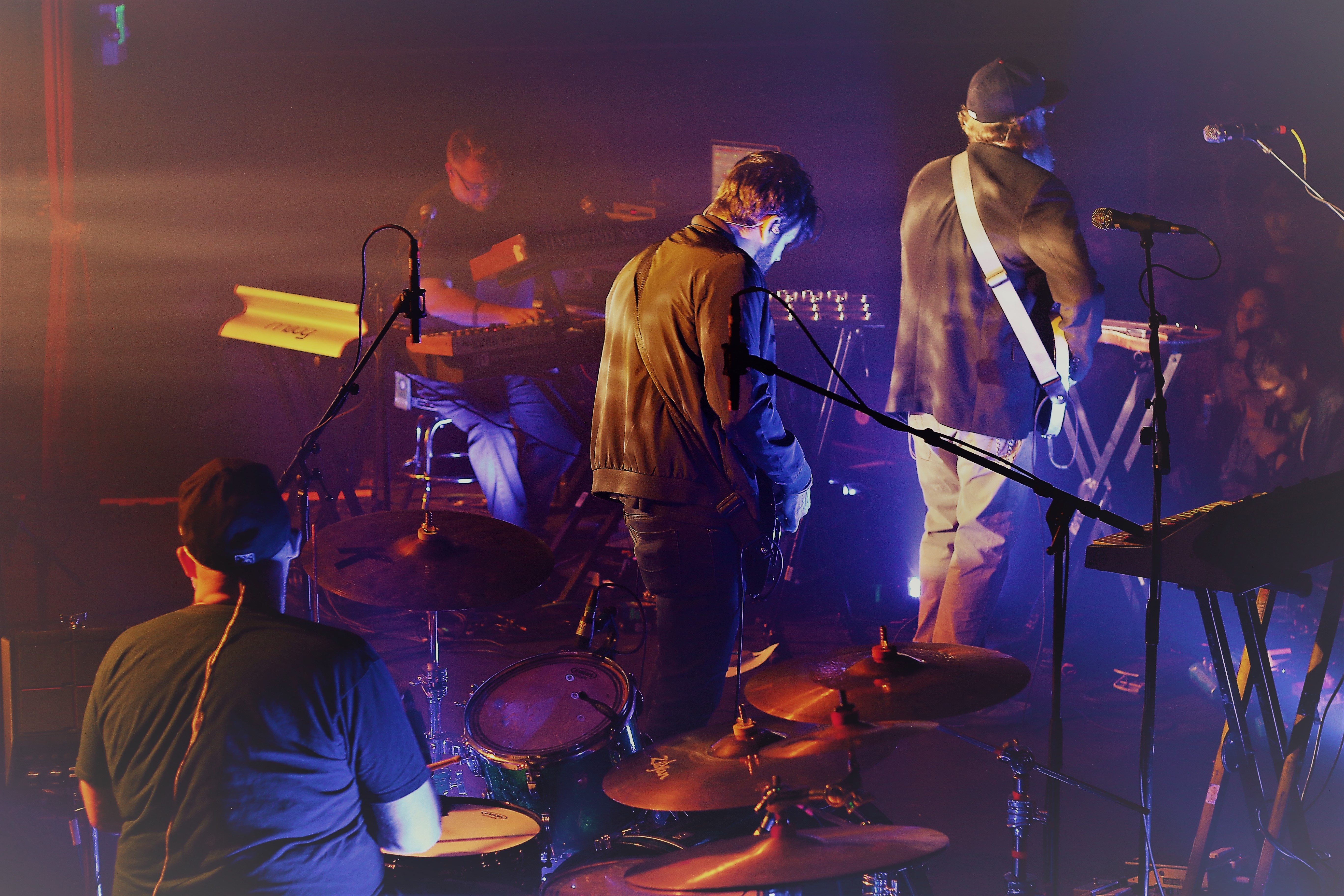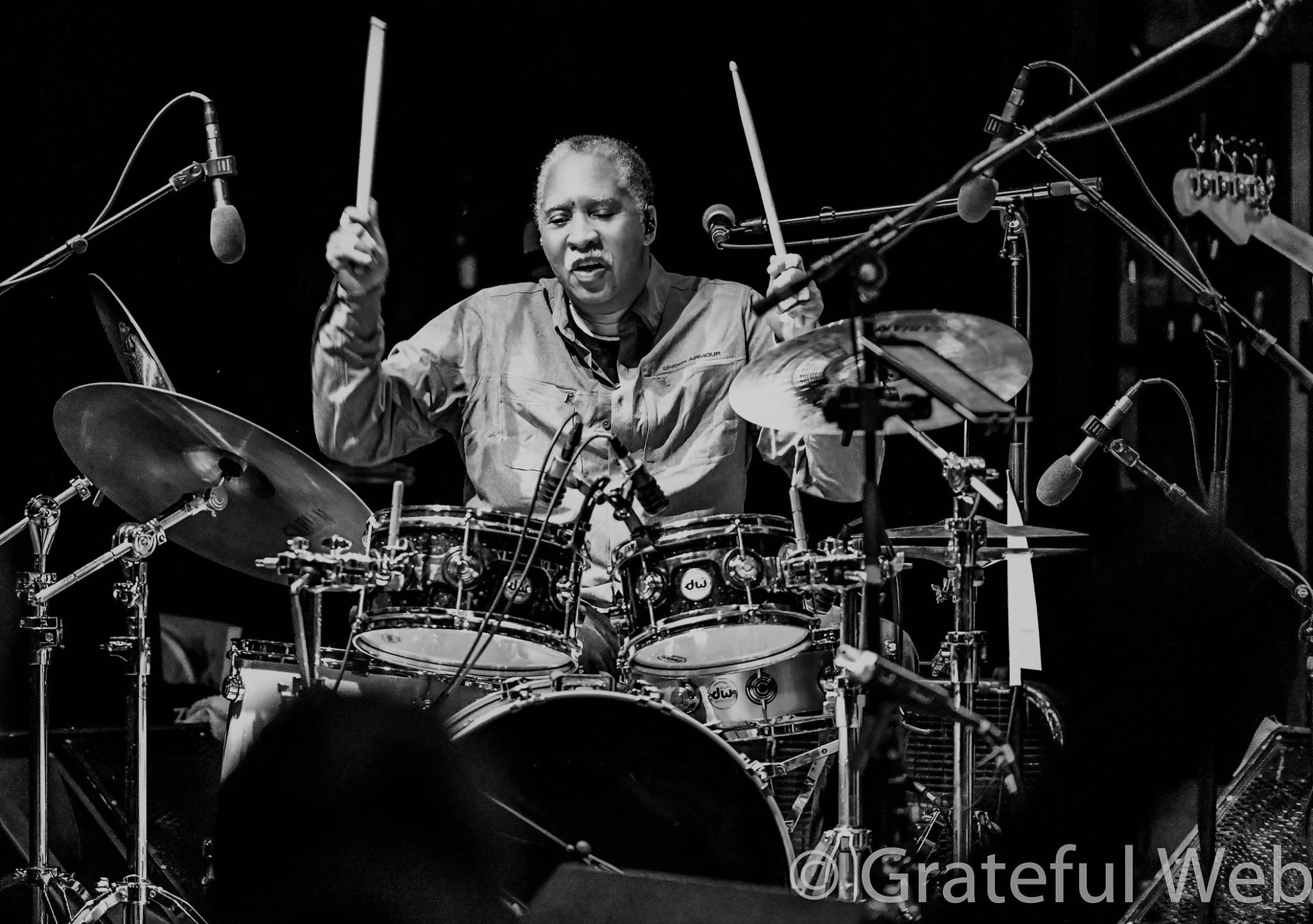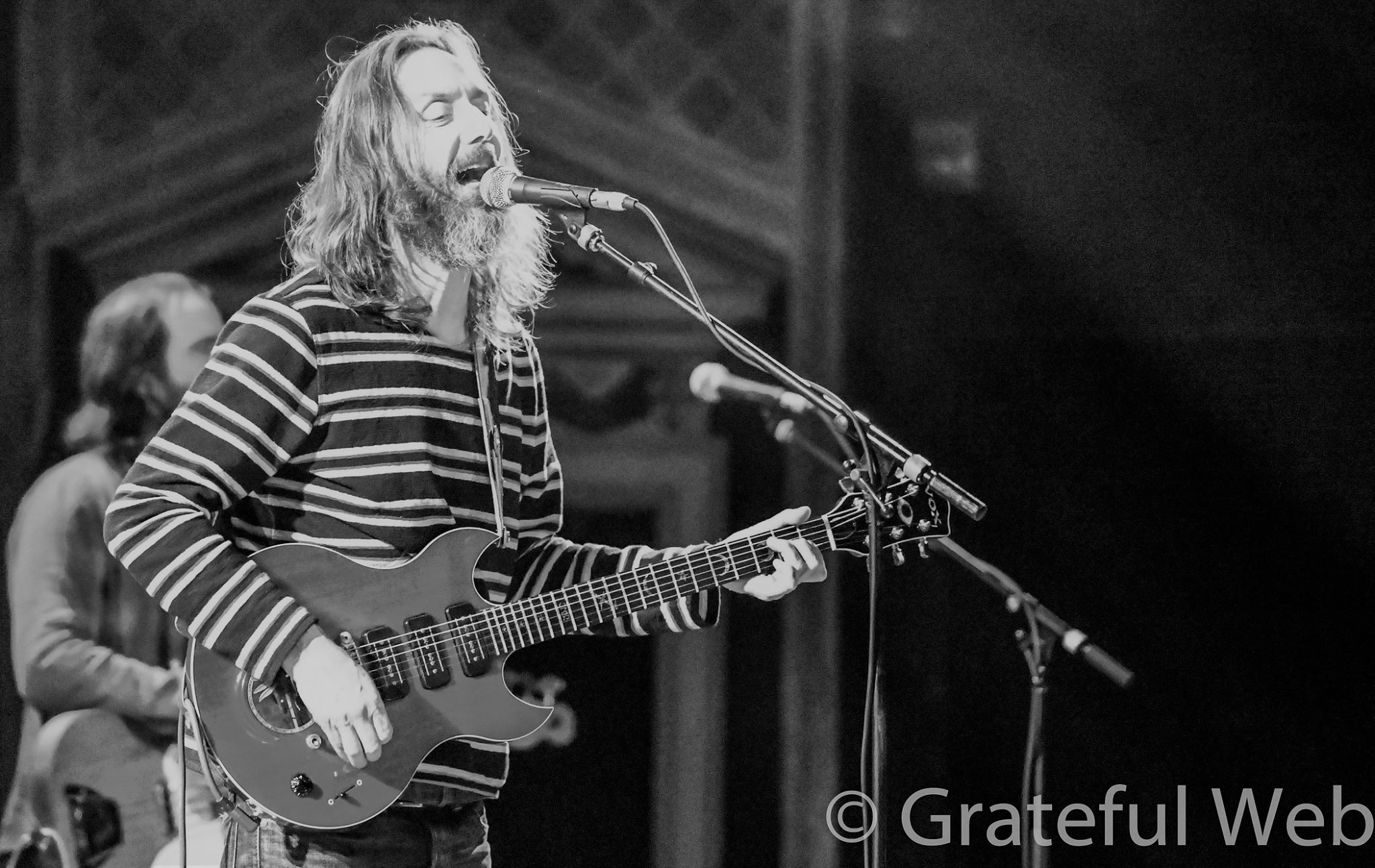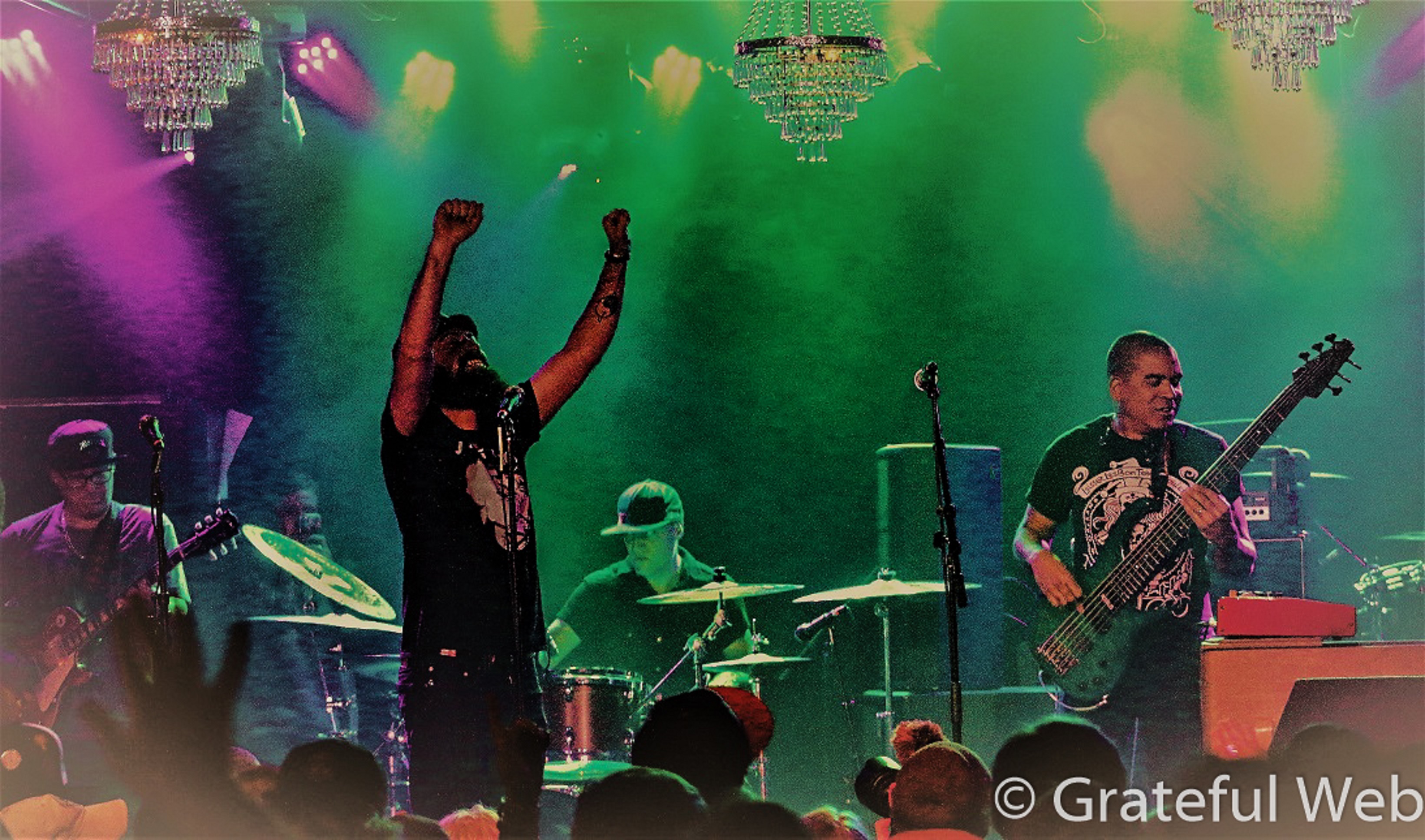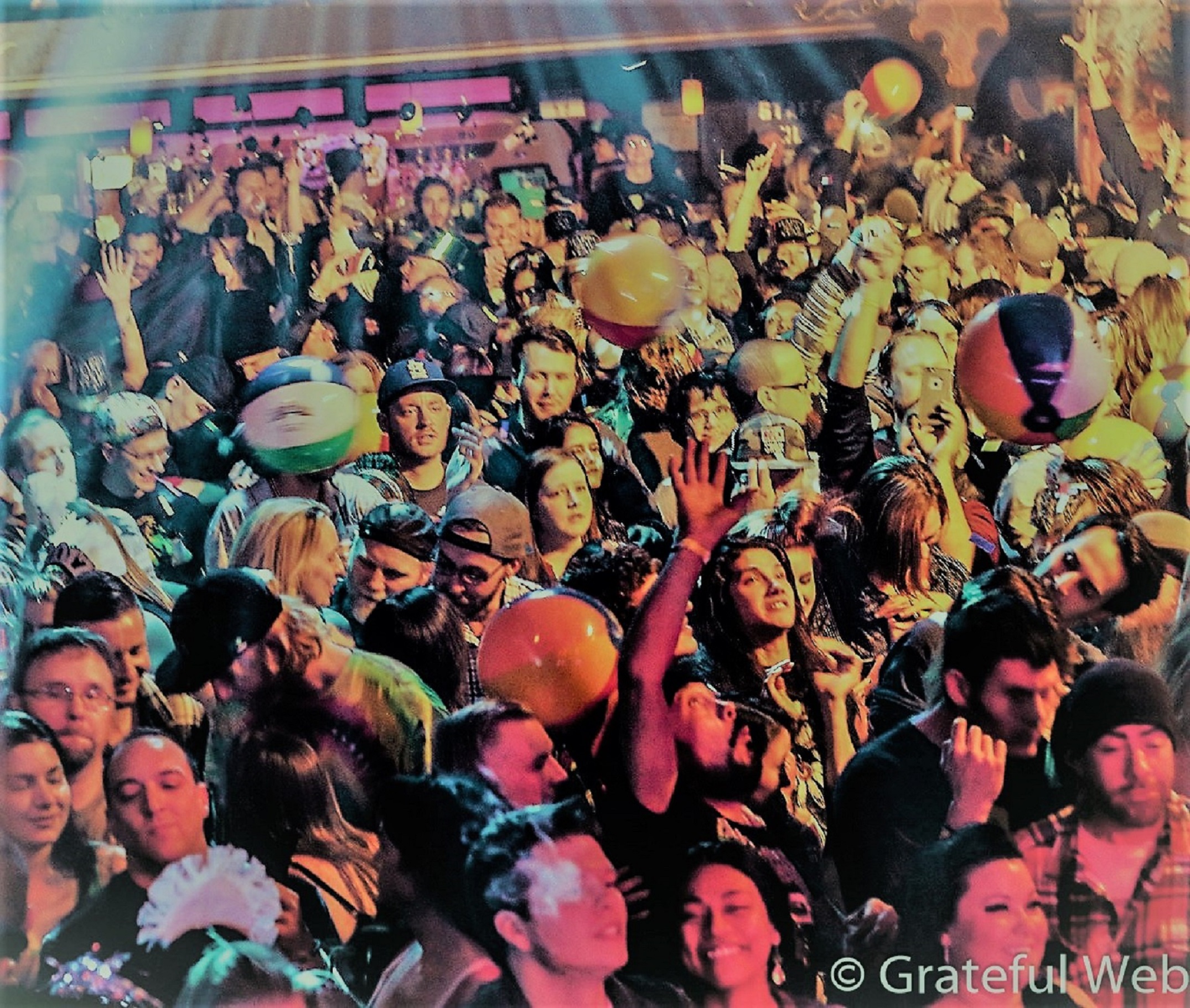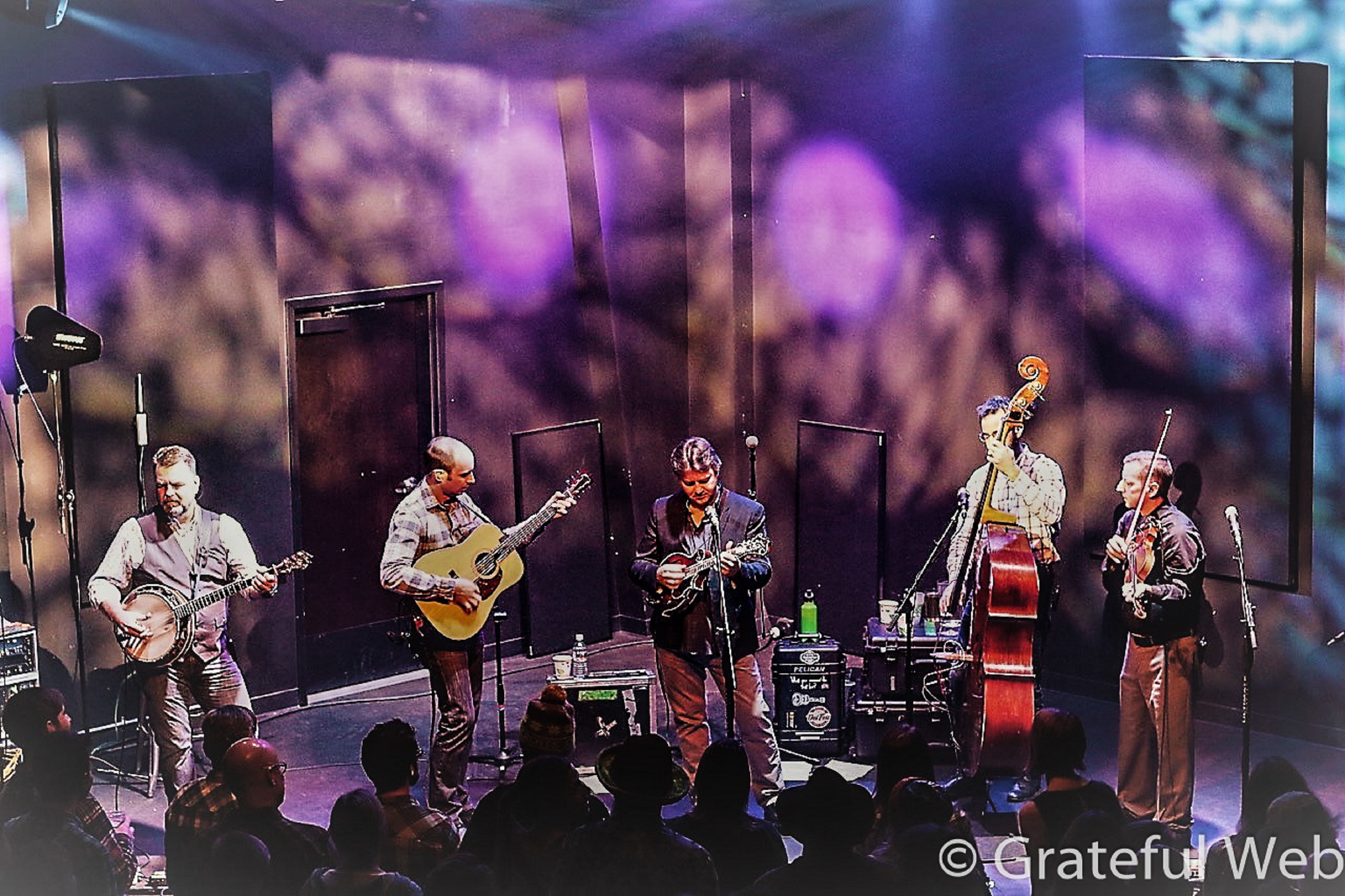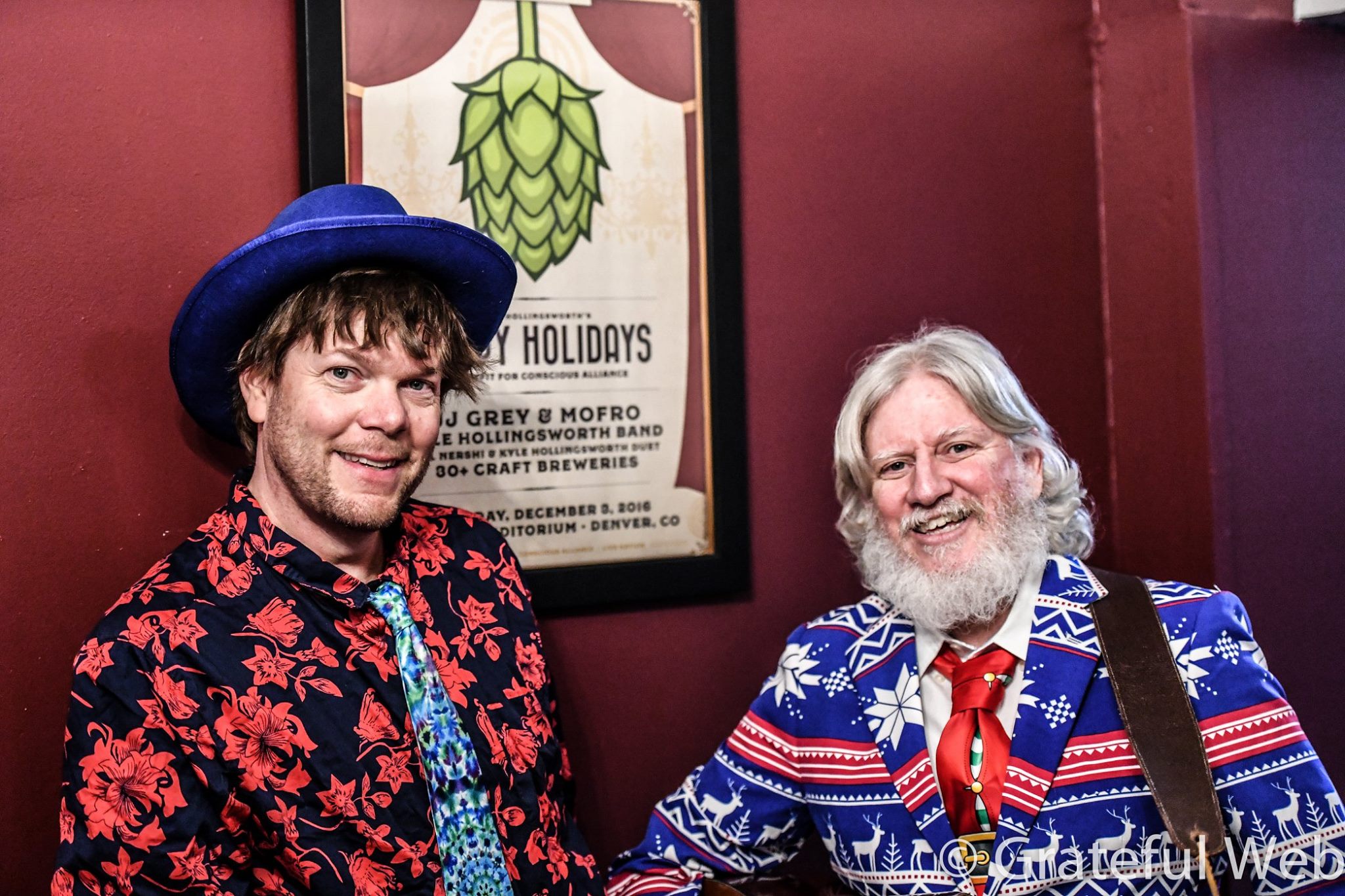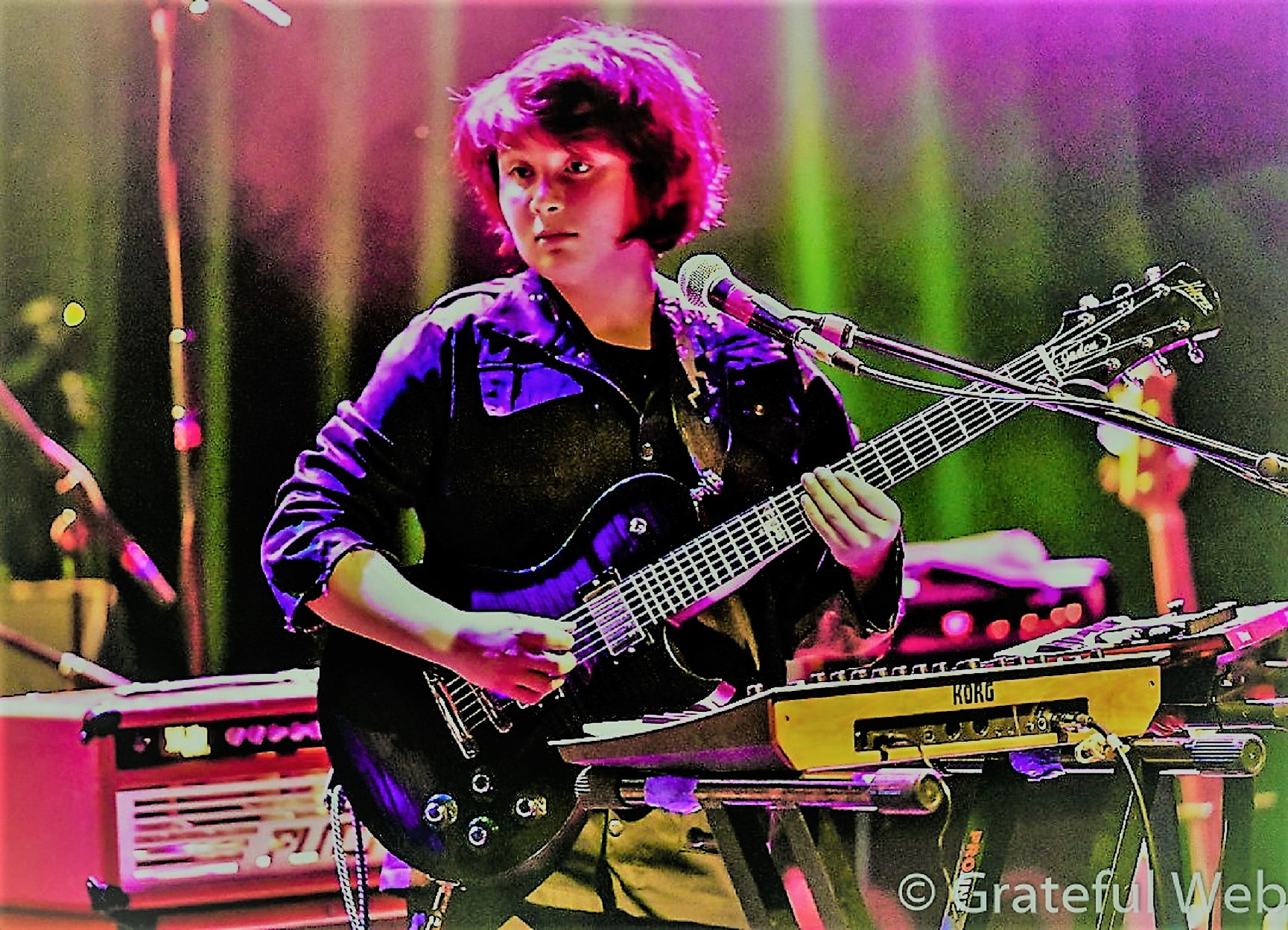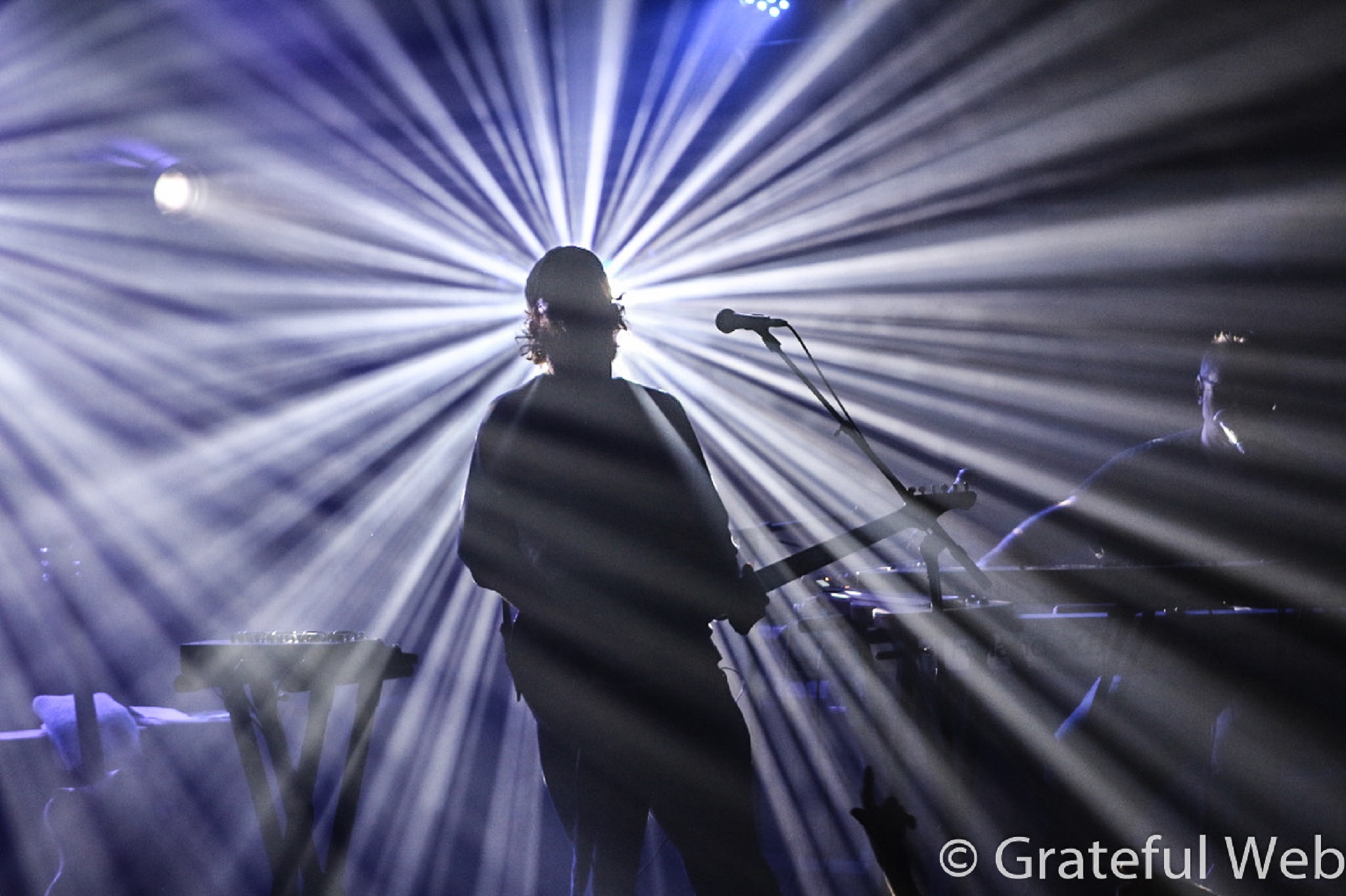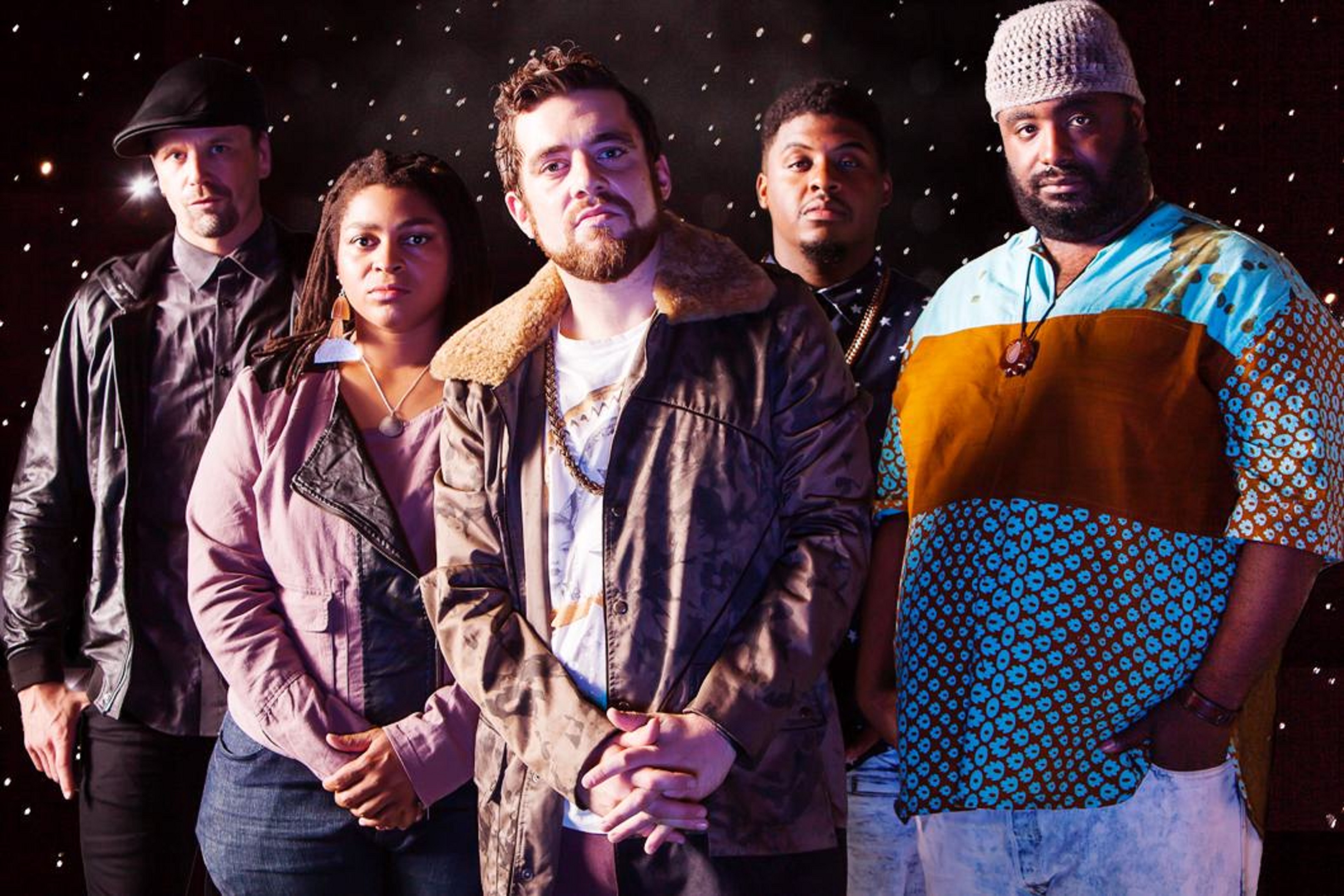Brian Haas, pianist and de-facto bassist of Jacob Fred Jazz Odyssey, took a moment from his extensive travels to speak with the Grateful Web about the big year ahead for JFJO, including two new albums, one of which was recorded live in Denver, Colorado at Dazzle Jazz and is slated for vinyl release on Record Store Day. Joining The Mike Dillon Band on the road for a west coast romp into the strange and surreal later this month, Brian speaks candidly about his longtime friend and hero, and the many years of history between them. For any fan of innovation and a break from the cookie cutter standard, this pairing is not to be missed, as both bands continue to get better with age, and there’s no telling what could happen when they get together in one room.
Grateful Web: My name is John Schumm with the Grateful Web, and joining me today is pianist and founder of Jacob Fred Jazz Odyssey, Brian Haas. Thanks for joining me today, Brian. I know we chatted a little about how you were just in Denver, but what else have you been up to, what’s going on these days?
Brian Haas: Well, it’s the Jacob Fred twentieth anniversary; so we’ve been super busy this year. We’ve had some great shows in New York, Chicago and St. Louis. We all trade time between Santa Fe and Tulsa, and we just wrote nine new songs and recorded them in Denver with Colin Bricker. So I just got back from that. We were going to do two records; put out two records this year of all old Fred, and we’ve got the Millions: Live in Denver thing coming out for Record Store Day, and we’re just writing so much new material that we decided to make the second one with all brand new tunes. So we just recorded that, it’s super unique stuff, and yeah, just kind of recovering from the drive. We just got in this morning at like three A.M. from Santa Fe (laughs). The other two guys in Jacob Fred live in Tulsa full time and I live in Santa Fe full time, so we go back and forth a lot.
GW: And you’re from Tulsa originally?
BH: Born in Kansas City, Missouri, really from KCMO, but I lived in Tulsa for most of my life.
GW: Cool. You were saying how you were recording some new material, does everybody bring ideas to the table when it comes to new material, or are you writing most of the stuff?
BH: Oh yeah, it’s very collaborative. With this new thing, I brought in half of the stuff and Chris Combs brought in half of the stuff, and then Raymer comes up with some of the weirdest drum stuff ever. This new thing that we recorded, man, I can’t wait for people to hear it. It’s super unique, super innovative, but I don’t know, really down to earth and accessible at the same time. I don’t know if I’ve ever really heard music like this before, so I’m super excited about the stuff we just recorded.
GW: Nice, can we expect to hear some of these new compositions on the upcoming tour?
BH: Oh yeah, we’ll be playing all of them, every last one of them. I mean that’s been the interesting way that this trio composes. We just come up with it all live, together, in a rehearsal space. Before we ever took the stuff into the studio, we played half of the tunes live in Chicago and St. Louis, and then pushed the others really hard in the rehearsal space. We went into the studio already playing this stuff pretty well.
GW: Jumping over to Millions: Live in Denver, the release you guys recorded at Dazzle Jazz this past November, did you play any of the new material for that show, or was that all retrospective stuff?
BH: That was all retrospective in Denver, but we spent a ton of time re-arranging it all. That was actually surprisingly hard work. A lot of those songs were played as a six piece or seven piece, or even eight piece, so for the three of us to distill it down, I think it was way harder work than any of the three of us expected it would be. So yeah, we showed up at Dazzle with like twenty-five re-worked Jacob Fred tunes, and that’s what became that record. We just chose the stuff that seemed to translate the best.
GW: I was going to ask how you dug through all of the material and decided which to do. You guys have so much stuff to choose from, it’s hard to narrow it down, I’m sure.
BH: Oh man, it was kind of humbling. I didn’t realize how difficult some of that old stuff was until I started to try and relearn it. Some of it we never even figured out what the chords were, and before tour, we just came up with new chords (laughs).
GW: Not really like riding a bike, huh?
 BH: No, it really wasn’t. I was coming off of Frames Tour; I made a record with Matt Chamberlain last year, and I toured that with different drummers for three months straight and then left the LA show, drove right to Santa Fe, where Combs and Raymer were waiting on me, and we dug right into it. We’d all been transcribing for months and talking about it and playing it. We played a lot of that stuff over the summer, and we rolled into Santa Fe thinking it was going to be a piece of cake, and it turned into these ten hour days of just really hard work before we even showed up at Dazzle.
BH: No, it really wasn’t. I was coming off of Frames Tour; I made a record with Matt Chamberlain last year, and I toured that with different drummers for three months straight and then left the LA show, drove right to Santa Fe, where Combs and Raymer were waiting on me, and we dug right into it. We’d all been transcribing for months and talking about it and playing it. We played a lot of that stuff over the summer, and we rolled into Santa Fe thinking it was going to be a piece of cake, and it turned into these ten hour days of just really hard work before we even showed up at Dazzle.
GW: Well, it sounds great. I was able to give it a listen last night and I enjoyed it as much as I did in person at the show.
BH: Awesome, well that’s good news.
GW: Yeah, it sounds awesome. So you guys are releasing that on Record Store Day as a vinyl release?
BH: Yeah, uh huh. That comes out vinyl only on Record Store Day, April 19th, and then the thing we just recorded will come out in September of this year, so yeah, we’re putting out two records this year. But the second thing we just recorded, we’ll put that out in September on CD and Vinyl, and digital as well.
GW: You mentioned earlier that you were reworking songs because most of them had a bass player, and had other musicians on them. I remember when I was at the show someone was saying, ‘where’s the bass, it sounds like there’s a bass up there,’ but there wasn’t, and I guess he came to realize that it’s a trio now. So after having a bass player for a majority of your time as a band, what led to the departure of the instrument, I guess I would say?
BH: Well really it started in 2002 when our original bassist decided he wanted to stop playing bass lines, and wanted to be more of a lead instrument. So if you go back and listen to a lot of the stuff with me and Reed and Jason Smart, I’m actually playing bass on Fender Rhodes for a lot of that trio stuff, and the lead voice is actually Reed, and that started in, actually, if you want to go back, in 2001 for Live in New York City, the last thing that Knitting Factory Records put out. It was called All is One: Live in New York City. A lot of the reviews for that, people were saying, ‘how did he make a Fender Rhodes sound like that? Is his instrumentation wrong? Why’s he playing such weird synth?’ And it was actually Reed doing all of that and I was playing bass on Fender Rhodes. So I’ve been playing bass with the band, and in fact half of the songs on All is One: Live in New York City, Reed is leading on bass, using a whammy pedal and distortion pedal. So I’ve been playing bass with Jacob Fred since 2000. We actually made an unreleased record, and thought we could get a Blue Note deal, and in 2000 we made a record called Ballad of the Mole People, and I’m playing bass on Fender Rhodes that entire album and Reed is playing the lead on bass guitar. So, to answer your question, I’ve really been playing bass on and off with the band since 2000. The first time you can hear it documented in a recording would be All Is One: Live in NYC, which came out on Knitting Factory Records. I’ve considered myself one of the main bassists in the band for a long time.
Now, when we switched over to the quartet with upright bass in 2008, then, because we had upright, I decided that I wanted to take a little break from playing so much low end and bass, and that’s when we made the transition from Reed on electric bass to a variety of different upright bassists. And so then, when it was upright on stage, I diminished my bass role, but that was only for, well, from 2009 through the Race Riot Sweet. I really slowed down on my bass playing because we were writing all of this stuff that required a bassist. But up until 2009, I shared the bass responsibilities with Reed, for sure. I mean, a lot of gigs I would play more bass on the Fender Rhodes than he would. It’s really interesting if you go back and listen to that recorded stuff (laughs)… You know, I’m super into playing bass, so I don’t make it obvious that I’m doing it, so a lot of times, it doesn’t sound like Fender Rhodes bass, it sounds like someone is actually playing a bass, but it’s not, it’s just me (laughs).
GW: It cracks me up, I remember looking on stage and looking for a bass player and hearing this guy say, ‘where’s the bass player, is he hiding off on the side somewhere?’
BH: I’ve been playing bass for a lot of the bands’ history, for sure, because Reed was such a lead instrumentalist and so he always felt kind of frustrated that he was relegated into the background as a bassist, and so we wrote tons of material where I was doing all or most of the bass, but what was so interesting is that most of the reviews, people wouldn’t really get it. Even when people were at the live show, we would get these weird reviews and funny comments where people were saying thing like, ‘it’s the ugliest Fender Rhodes sound on earth, and how the hell are they doing this, and why are they doing this?’ Well, it wasn’t the Fender Rhodes, it was actually Reed’s bass run through a whammy pedal or an octave pedal. But people are just so used to seeing a bassist and assuming that those noises are coming from the bass. It’s funny how gullible humans are. We kind of just go with what we know or what we’re used to, right?
Man, tons of records from 2002 through 2008, I mean we got a lot of great reviews and critics have been very sweet to us, but it’s interesting. It became frustrating for Reed because nobody could figure out that it was him doing that. It’s like people could not break with the paradigm shift (laughs), and notice that the dude freaking out playing those lead lines wasn’t me, it was the guy on bass. So it became very frustrating for Reed because all of the badass shit he was doing was being attributed to me. Multiple times I would write letters to DownBeat or JazzTimes and say, ‘you guys need to use your ears and need to use your eyes, and actually look at who’s doing this on stage.’ Because they would say, ‘on this tune the melody came soaring out of nowhere and hurt my ears,’ or whatever. It was too high pitched, or it was this and that, and I’m getting blamed for them not liking it or I was getting Reed’s accolades. So it was really interesting. Nobody could figure out that I was the pianist playing bass. That’s a long answer to a short question, but I’ve really been playing bass in the band for, you know, a long time.
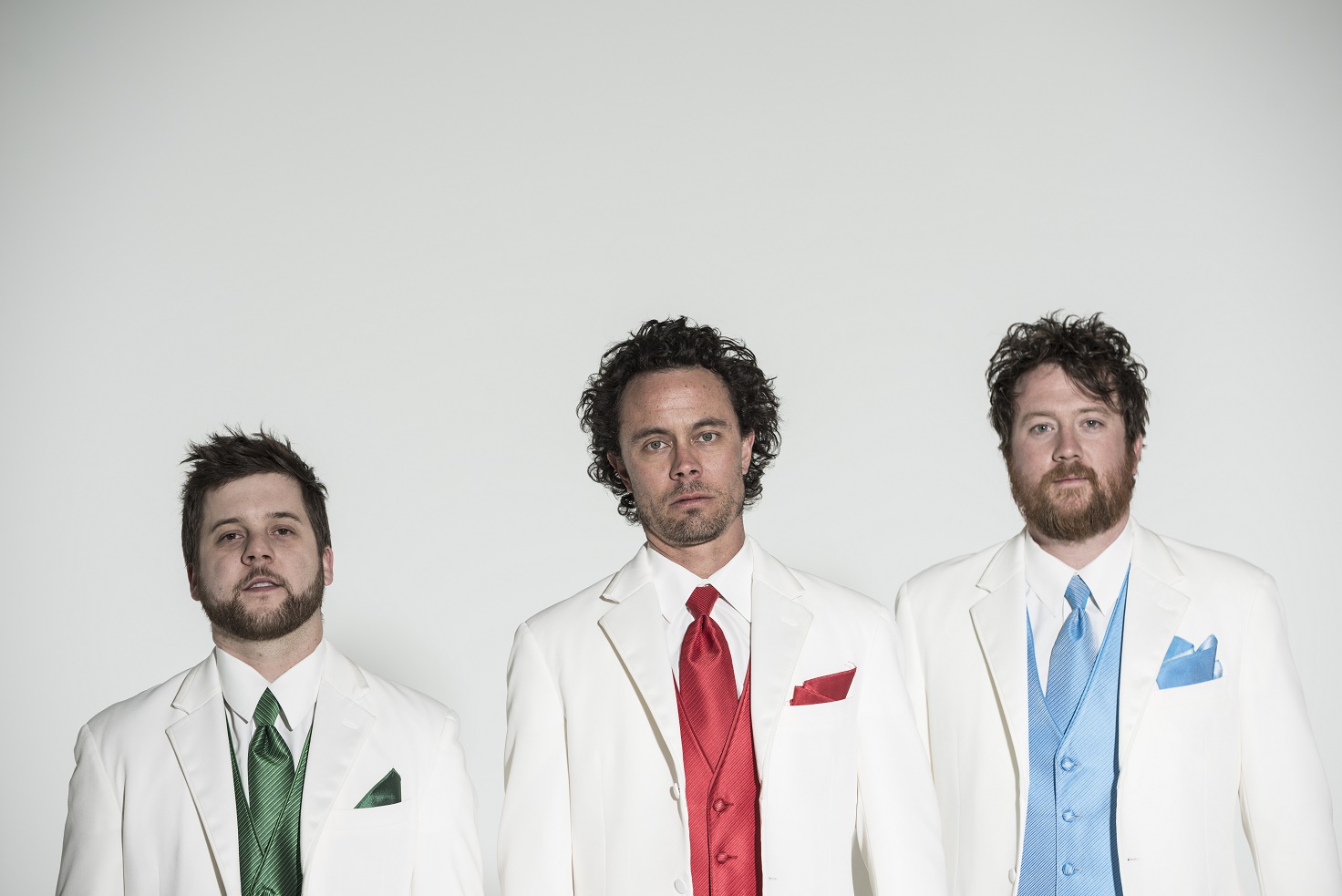 GW: And now with the trio you’re holding that down as well, and you have Combs on lap steel guitar and Raymer on drums.
GW: And now with the trio you’re holding that down as well, and you have Combs on lap steel guitar and Raymer on drums.
BH: Uh huh. But Combs and I both got a Moog sponsorship. Moog, for some reason, loves us. Are you going to be at the Boulder show on the 19th?
GW: I’m supposed to be, but I might be out on tour, I work for a couple of bands.
BH: Very cool. Well, Combs got a moog as well. So I play most of the bass with Jacob Fred now, but there are also some really dope new tunes where Combs is actually playing bass. And he’s actually making loops and stuff on his lap steel, and he’s got a tiny keyboard run through the Moog Minitaur, and there are some really cool songs, some that I wrote and some that he wrote, where Combs is playing bass too, which is going to further confuse everybody (laughs).
GW: Hey, you have to keep people on their toes.
BH: (Laughs) Exactly. I’m really glad you dig the Millions: Live in Denver, because it’s going to blow your mind when you hear the evolution between that stuff and the nine new songs that we just wrote and recorded. I mean it’s crazy. It’s the most I’ve ever listened to a record after I’ve recorded it. In between Denver and Santa Fe, I bet we listened to it-well first we had to get from Denver to Santa Fe to pickup one of my dogs-I bet we listened to it like twenty times in between Denver and Santa Fe, and then between Santa Fe and Tulsa, that’s all we listened to. We kept trying to put on other shit, but we just kept on going, ‘man, I just want to hear to that Jacob Fred shit (laughs).’ It’s the most I’ve ever liked a record, hopefully I like it this much in two months, man, but it’s definitely the most I’ve ever liked a Fred record. I mean we just keep listening to it, I don’t know, it kind of took on a life of its own. It kind of surprised Calabro too because he was all fired up for another retrospective album, but then a month or so ago we were like, ‘hey, we’ve got nine really new, weird tunes. Are you cool if we don’t do more old stuff,’ and Calabro thought about it for a little while and said, ‘if you’re passionate about it, do what you’re passionate about.’ So it’s a total evolution of the band, and really cool. It’s very weird, unique stuff (laughs).
GW: I love it. How long have the other two guys, Raymer and Combs, been in the band with you?
BH: Raymer joined in 2007, and Combs joined in early 2008. So, they’re the other two guys that have been in the band the longest, other than me. Raymer has been for seven years and Combs has been in for six years.
GW: Well it’s really starting to show that you guys know each other on stage and through your music.
BH: Yeah, we’ve spent a lot of time together, that’s for sure.
GW: Definitely locked in, it’s great.
BH: Thanks brother.
GW: Of course. You’re music is kind of in a league of its own, I would say, and on the upcoming tour, you’re doing a co-bill with Mike Dillon Band, who I would also say his music is his own and nobody else is really touching what he is doing. How did you first get to know Mike Dillon, and what kind of history do you guys have?
BH: I first saw him play when I was seventeen years old, before I even started Jacob Fred, and I was a classical musician, and thought I wanted to be a classical musician for a living. My favorite shows to go to were punk rock shows in Tulsa, and Tulsa has always had a huge music scene, especially punk rock scene, and the people kept going, ‘hey man, there’s this weird band that comes through every two to three months, you have to see these guys, you’re going to love these guys.’ And the band they were talking about was Billy Goat, which was Mike D’s first big band that blew up. Did you ever see Billy Goat live?
GW: I have not, no, I never did.
BH: I would say it was like a pagan explosion of insanity. So a lot of them were jazz guys from North Texas that got really into drugs and started doing super unique shit. So I walked into this dirty club in Tulsa called The Eclipse, I was seventeen years old, and it was my senior year in high school. Most of the band was naked, and Mike D was buck ass naked at the front of the stage, rapping with his lisp, and he was playing timbales and then took this unbelievably elegant, eloquent timbale solo just buck ass naked at the front of this packed ass club. That was the first time I ever saw Mike D, and I was terrified of this dude. I mean, you think he’s scary now, you should have seen what this dude was like when he was shooting up hard drugs. He was terrifying. He was the epitome of the punk rock tour. He still is, he’s still my hero to this day, but he came out, and seeing jazz in that context and that they had a song called Take Off Your Clothes and Everybody Get Naked, or some shit like that, and being at this club as a seventeen year old and all of these girls are taking off their shirts and this band is playing this angry jazz shit. I mean, as a seventeen year old, I walked in there, and stood there, and people were moshing and shit, and I realized that what I was doing was completely irrelevant, that I would never be able to get people to get excited like this if I was only going to be playing classical music, if I was only going to be playing other people’s shit.
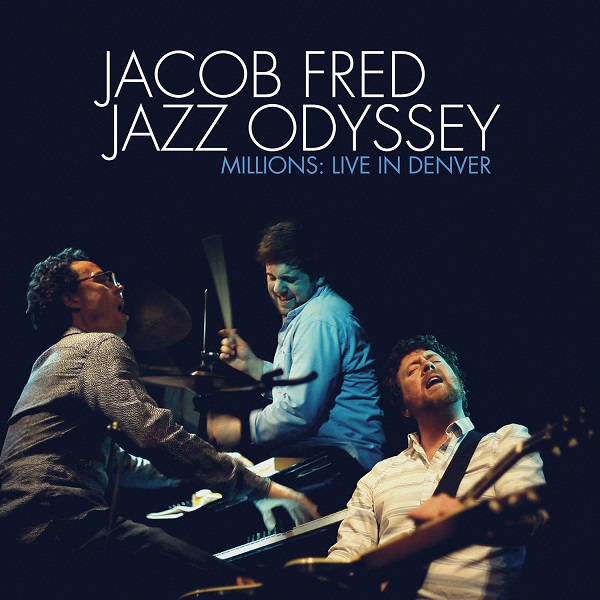 So Mike D was an inspiration, originally, for me to even start Jacob Fred, and for me to even think I could do something so far out. And I did not miss any of his shows in the Tulsa area after that. I never went to talk to him; I was completely terrified of this guy. I mean he had his wife onstage; she was getting naked, too. Half the band was naked. They all had big dicks. I mean, it was just terrifying, and it’s like, they’re not getting arrested. They just do this at every show (laughs). And Billy Goat got signed to universal, and sold a shit load of units in a month, and got dropped, because they figured out that he was on drugs, or because of something. But they moved a ton of units in a short period of time and did get a major label deal in the late eighties, early nineties. And they were from Texas, and I’m from Kansas City and Tulsa, so Billy Goat was a huge deal in this region.
So Mike D was an inspiration, originally, for me to even start Jacob Fred, and for me to even think I could do something so far out. And I did not miss any of his shows in the Tulsa area after that. I never went to talk to him; I was completely terrified of this guy. I mean he had his wife onstage; she was getting naked, too. Half the band was naked. They all had big dicks. I mean, it was just terrifying, and it’s like, they’re not getting arrested. They just do this at every show (laughs). And Billy Goat got signed to universal, and sold a shit load of units in a month, and got dropped, because they figured out that he was on drugs, or because of something. But they moved a ton of units in a short period of time and did get a major label deal in the late eighties, early nineties. And they were from Texas, and I’m from Kansas City and Tulsa, so Billy Goat was a huge deal in this region.
Then I started Jacob Fred, and I was nineteen, and we took off really quickly, for better or worse. I mean immediately, Jacob Fred, once we started, we were playing for three hundred to five hundred people every night in the region. Eventually, we ended up in Lawrence, Kansas one night, I think it was 1996, and I would have been twenty-one. We played an early show in Lawrence, and I heard through the grapevine that Mike D was playing a gig in Kansas City with Malachy Papers. So we busted ass, packed up, drove to Kansas City, went to this dirty little dive bar, and Malachy Papers was Mike D’s kind of free jazz experimental band. I was twenty-one, it was 96’ and we rolled in right at the end of the set. They were killing it, and then Mike D, who was playing vibes and percussion, got into this huge fight with the drummer on stage, and they actually started throwing cymbals and shit at each other. Everybody in the band was terrified, and the guys in my band said, ‘we drove all the way from Lawrence to see this mayhem?’ And I was right up front in disbelief. I mean they were throwing cymbals at the ground, yelling and screaming at each other, and I just kind of stood up there, and when Mike D came down off of the stage I was one of the only people left standing there, and he was like, ‘what’s up man?’ And I said, ‘hey Mike, Mike Dillon, my name is Brian Haas, I play with this band called Jacob Fred Jazz Odyssey and we’re all here, we all drove up to see you.’ And he was like, ‘oh yeah man, I’ve been seeing your posters around. Do you guys really play jazz or are you just more fucking posers?’ And I was just kind of like, ‘ugh, both.’ And he was like, ‘oh, I like that. Here’s Mark Southerland,’ and he introduced me to the guys in the band, and that was in 96’ and the first time I had ever met him.
I think he just kind of liked my Midwest attitude, that I didn’t have an attitude or any kind of ego. We toured all of the same clubs, and he saw our posters everywhere, because I’ve always been really into street team and promo and promoting on the ground level. So Mike had been seeing our posters for a couple of years and said that he felt kind of competitive that we had the name jazz in the band, and we were drawing well and were in his region, and after that first question, I responded the only way I knew how because I was terrified of this guy, and I think he was charmed by that and we’ve been friends ever since. I mean, now we’re way beyond friends. We’re like, fucking, you know, brothers. Mike is really one of my first heroes that I can say I really had as an adult; where I said, ‘man, this guy is getting in this dirty van, he’s doing three hundred shows a year, he’s beyond terrifying, but he’s making this music that nobody has ever made.’ Mike D has always been an innovator. I love his current band. Obviously he’s brilliant, but he’s always been on this trip. A lot of people don’t realize that, but Mike’s never ever sat still. From Billy Goat on he’s been churning and burning. He’s very much in the tradition of Coltrane, or Mingus, or Eric Dolphy, Miles, you know, I’m just trying to think of people that always push. People like Yusef Lateef, people like Cecil Taylor. Who else can I name…
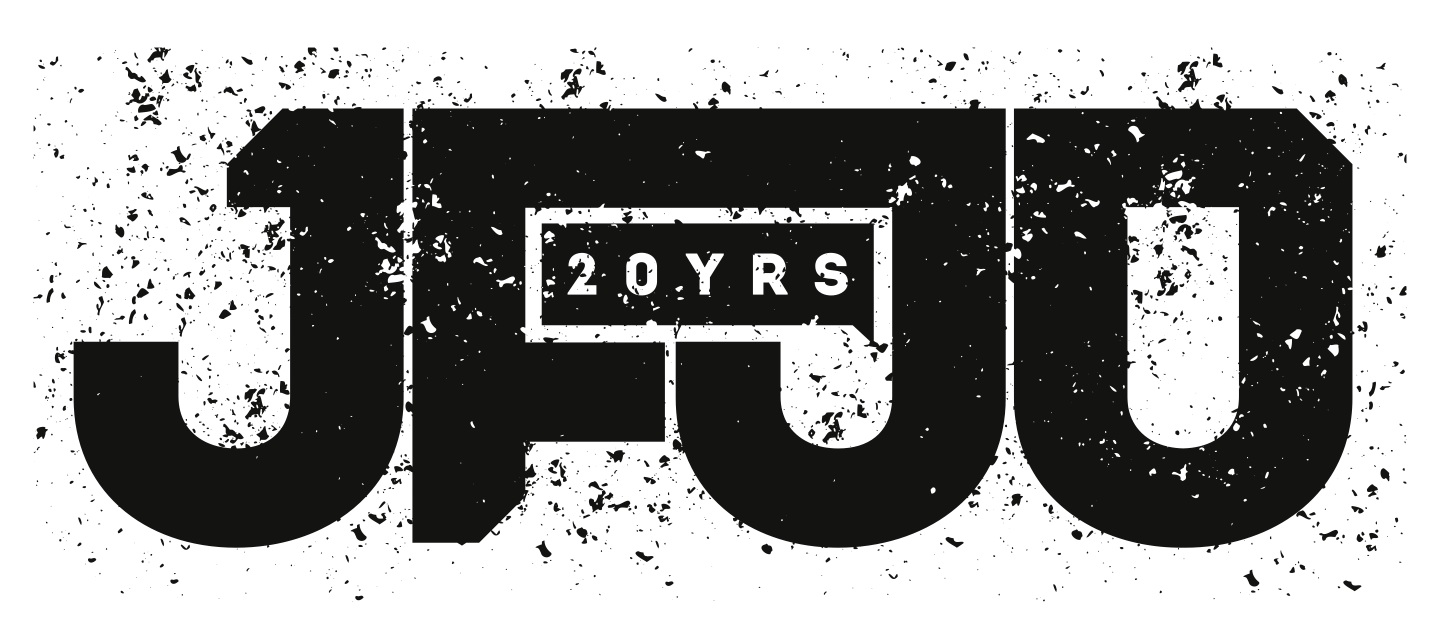 GW: He really is just always moving. It’s crazy.
GW: He really is just always moving. It’s crazy.
BH: Yeah, he never stops. He never stops. I mean we started the Dead Kenny G’s together, which is myself and Mike D and Skerik, and Mike would get three to four hours of sleep a night. Skerik and I would always room together and give Mike his own room because Mike’s always up at seven A.M. everyday and goes on a jog and then practices tabla for two hours. I mean he just never fucking stops, and he’s part of that jazz tradition of just constant innovation, constant churning, constant burning, and a lot of people don’t understand that Mike’s music is actually jazz. It’s way more in the jazz tradition than this horseshit young bullshit that JazzTimes and DownBeat espouses, that shit is not jazz, it’s a fucking history report. It’s like classical music gone wrong, you know, but what Mike D does is not a history piece, it’s actually taking history and squashing it and molding it and turning it into his own innovation. I can’t believe Mike D hasn’t been on the cover of DownBeat and JazzTimes like ten times already, but people are terrified of him and won’t admit that what he does is actually jazz, and what they’re trying to sell in these magazines is just regurgitated, poorly. So Mike has always been a hero of mine ever since I was seventeen years old, ever since the first time I saw him, I was like, this is Coltrane, this is real, this dude is not posturing. He’s dying for this shit every day, and that’s been my philosophy behind Jacob Fred ever since I started the band when I was nineteen. I mean, in twenty years we’ve had sixteen members. Millions: Live in Denver will be our twenty-second album in twenty years. I’m very much a Mike D disciple. So for me to be able to go on the road with him for a whole run is just beyond perfect. Just absolutely a dream come true.
GW: You mentioned the Dead Kenny G’s; can we expect you guys to get on stage together throughout the tour?
BH: Oh yeah. We’re planning on trying to set up everything every night, and then ending every night with all of us playing together. That’s the basic idea. It’s all about the space, the stage, and what time allows, but we’ve all already played with each other a lot, so the idea is to keep pushing that.
GW: Well hell, with the two bands together-it’s kind of mind blowing. And to see it in a venue like Shine, you said you’d been there, you know, it’s an interesting joint.
BH: I love the mission statement there, that’s one of the main reasons I want to play there. And it’s a Wednesday, and I was too scared to play The Fox on a Wednesday, I’ve got to tell you. It’s a little big. I’m a huge fan of the three sisters, and the food there, just their mission statement is clean, organic, local, and if more people ate like that we wouldn’t need health insurance, we wouldn’t need doctors, I’m just super into Jill and what she’s doing there, for sure. It’s a tiny room and a tiny stage, I mean Jesus Christ man, just Mike D’s gear alone is going to take up that whole stage.
GW: You guys are going to be spilling off the damn thing.
BH: I know (laughs), we’re just going to have to set up on the floor. I went back there and looked at it when we were there two nights ago, and yeah, just his vibes and timbales and all of his shit is literally going to take up that whole stage.
GW: And they’re bouncing around, too. Carly with her trombone is bouncing around everywhere; she probably won’t even be on the stage.
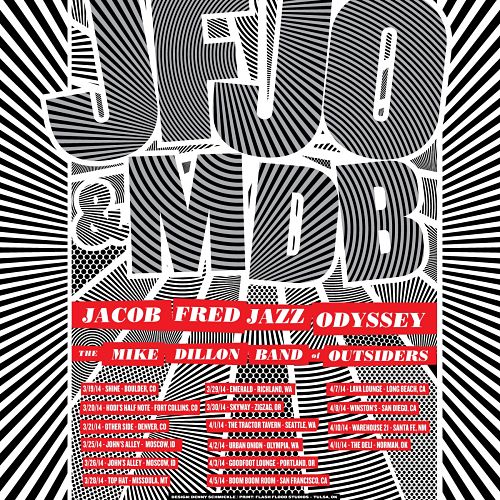 BH: Oh, it’s going to be rowdy. It’s going to be rowdy.
BH: Oh, it’s going to be rowdy. It’s going to be rowdy.
GW: Well that’s good, that’ll be fun. I’m looking forward to it and hope I can be here for it. Is there anything else you’d like to add while I have you?
BH: Man, I think you did a great job of bringing up a lot of relevant stuff. I appreciate your intelligent questions, for sure.
GW: No problem. I’m actually about to get on the phone with Mike, you want me to pass anything on to him?
BH: (Laughs) Just tell him I’m really looking forward to it and that we’ve been working our asses off promoting it. The tour’s going to be fucking banging. So yeah, tell him I say hi and that I’m looking forward to it. You’ll have to tell him (laughter), give him some hints about what I just said about him. He’s already got a really big head so don’t blow him up too much (laughs). And the reason he has a big head is because he’s one of the greatest on earth and fucking knows it, so he’s got every right to have a big head. I still consider him one of my heroes, he’s one of my only original heroes who actually stuck to his gun, and that’s what I love about him so much. He and I really have the same mission statement, and that is, don’t stop believing (laughs). Well man, thanks for the time and tell Mike hi and that I love him, and that I still have a huge bag of his clothing, because every time he comes to my Santa Fe house he just leaves shit all over the house, just like a wild animal that you leave in the house, and the wild animal shits everywhere. So yeah, I still have his touring duffel bag with all of the clothes in it.
GW: He’s just waiting for you to get them to him in Boulder.
BH: I know. Well thanks, man, for the great interview. I appreciate it.
GW: Absolutely thank you and I’ll catch you down the line.
Upcoming JFJO and Mike Dillon Tour dates:





